AppCode 2019.1: Swift 5, improved backlight, navigation and autocompletion, moving expressions and more
Hello!
A week ago we released AppCode 2019.1 - let's talk about changes in it. Under the cut a lot of new, useful, revised and updated.
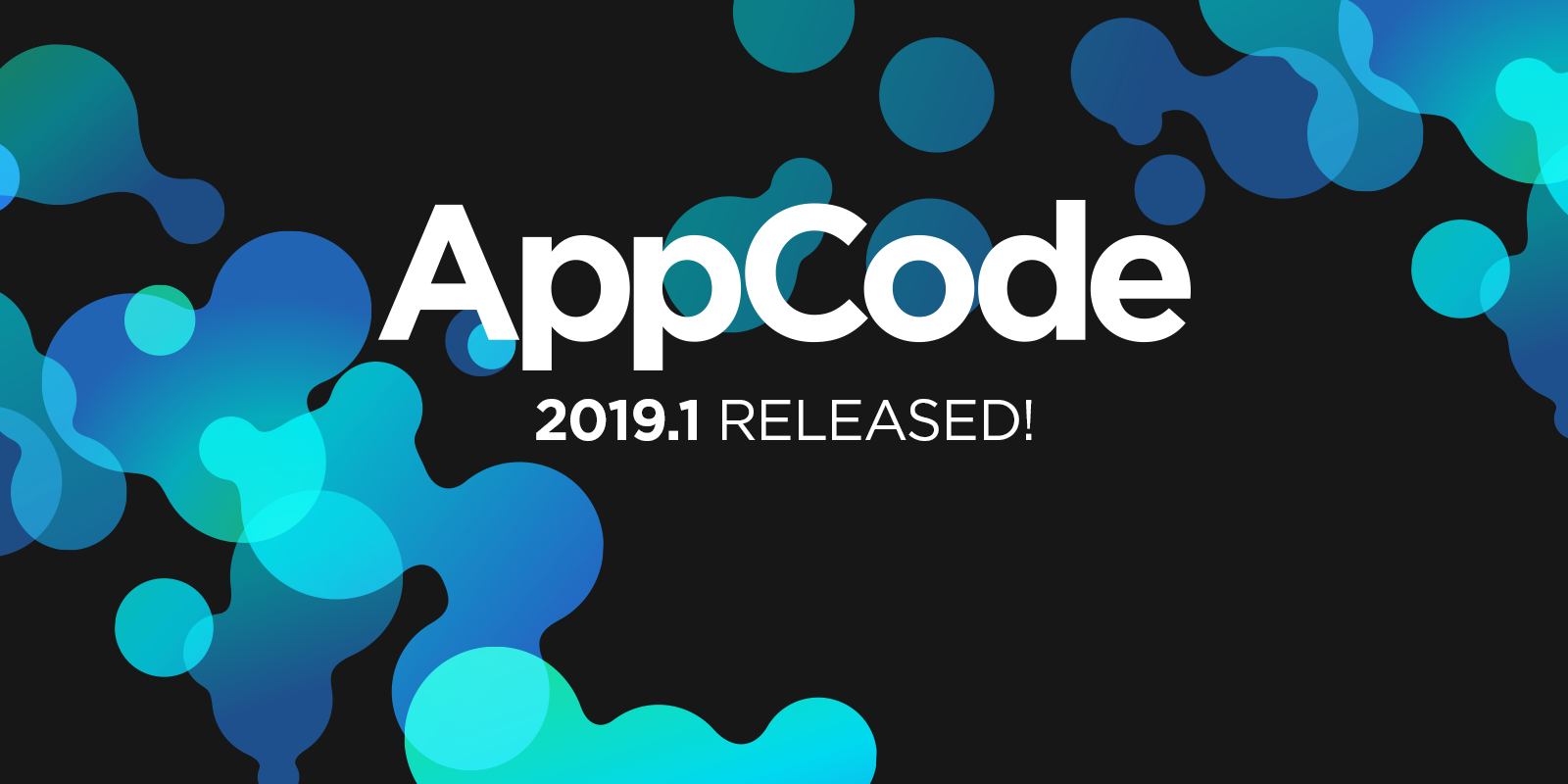
Swift
Swift 5
All the new features of Swift 5 work correctly in AppCode 2019.1:
- SE-0200 Raw text literals
- SE-0213 Literal initialization via coercion
- SE-0216 Dynamic callables
- SE-0224 Support 'less than' operator in compilation conditions
- SE-0227 Identity key path
- SE-0228 Fix
ExpressibleByStringInterpolation - SE-0230 Flatten nested optionals resulting from
try?
Rename
There was a problem with renaming overloaded methods and methods of the parent class - and now it does not exist.
Navigation to the definition
It would seem, what could be simpler and more elementary than the transition to the definition of a method or class? Standard, familiar action.
And everything is really so in Objective-C: when the object is initialized, the type name is separate, the initializer method itself is separate. Accordingly, if the cursor is on the type name, we proceed to the type definition, if on the initializer, to the definition of the initializer. But in Swift, everything becomes more complicated. The initializer merged with the type name together, and if you reproduce the behavior of Xcode, we lose the ability to go to the initializer. If we leave the behavior of AppCode 2018.3.x, we break the user's habit (“as in Xcode”, that is, the transition is not to the definition of the initializer, but to the definition of the type). For obvious reasons, users do not like this.
As a result, a median solution was worked out: the expression that initializes the object in Swift still consists of two parts. All that to parentheses is the type name, and everything inside is the initializer signature. Therefore, if the cursor is on the type name, proceed to the type definition, if inside the parentheses - to the initializer definition:
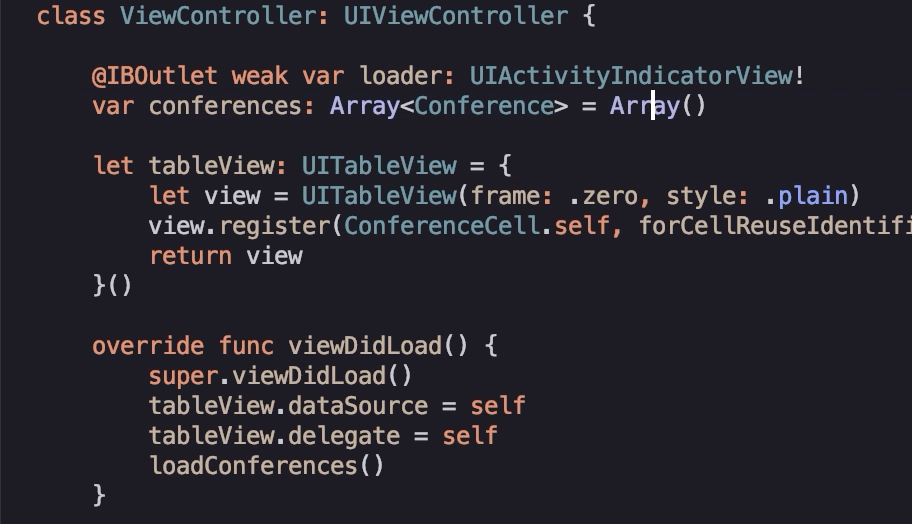
Both usage scenarios are saved, everyone is happy.
Moving expressions
While Xcode users select with mouse and copy-and-paste, AppCode users place the cursor on the expression and move it all with a slight touch of ⇧⌘↑ / ↓ :
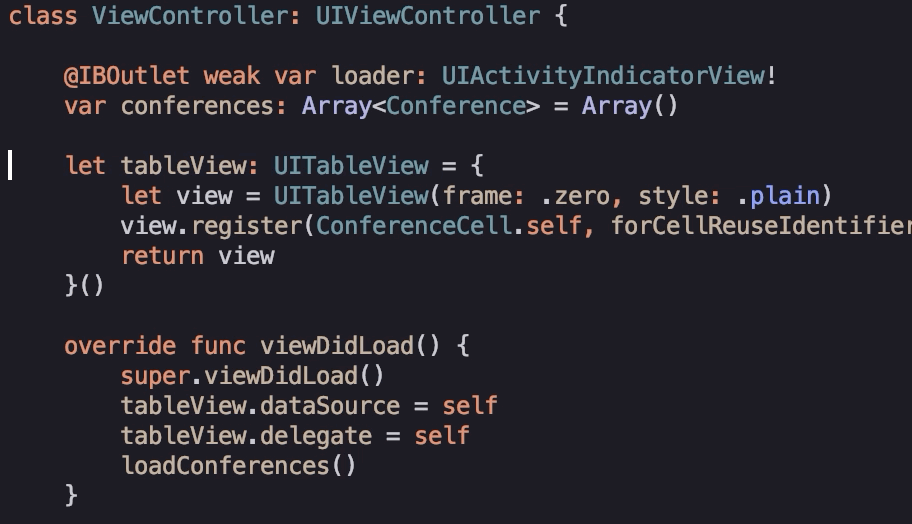
Works for cycles, functions, methods, classes, conditions, in general, for almost everything.
Multiline literals
How to turn a single-line literal into a multi-line? In AppCode, now just press ⏎ :
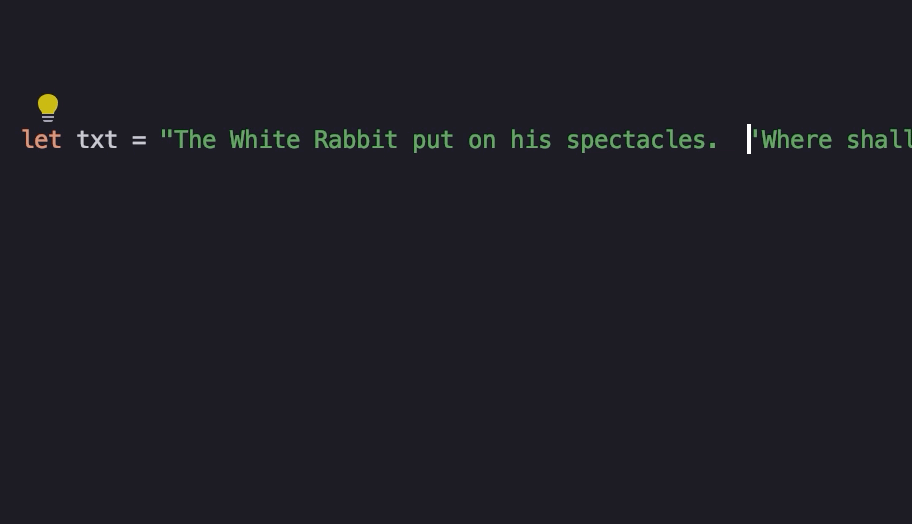
Backlight, autocompletion, code analysis and all-all
The more correctly we build a tree of symbols that is used for highlighting, code analysis, navigation, and other IDE functions (even for displaying variables in the debugger), the better and more correctly the AppCode will work. In this release, we solved several fundamental problems that ruined the lives of users:
- We began to build library symbols for both simulators and devices. Previously built only for the simulator.
- Having done this, they began to correctly determine the current platform (simulator / device) and correctly transfer it to the clang-annotator in Objective-C and SourceKit in Swift. Why is it important? For example, SourceKit will not display errors and warnings if it is incorrect for it to pass the folder with the build products in the arguments. This problem should disappear.
- Began to properly handle DerivedSources and all the sources generated in this folder (Core Data, Intents).
Objective-C / C / C ++
Colleagues from CLion added codeset naming styles for C / C ++, and we got them for Objective-C as well ( Preferences | Editor | Code Style | C/C++/Objective-C | Naming Convention) :
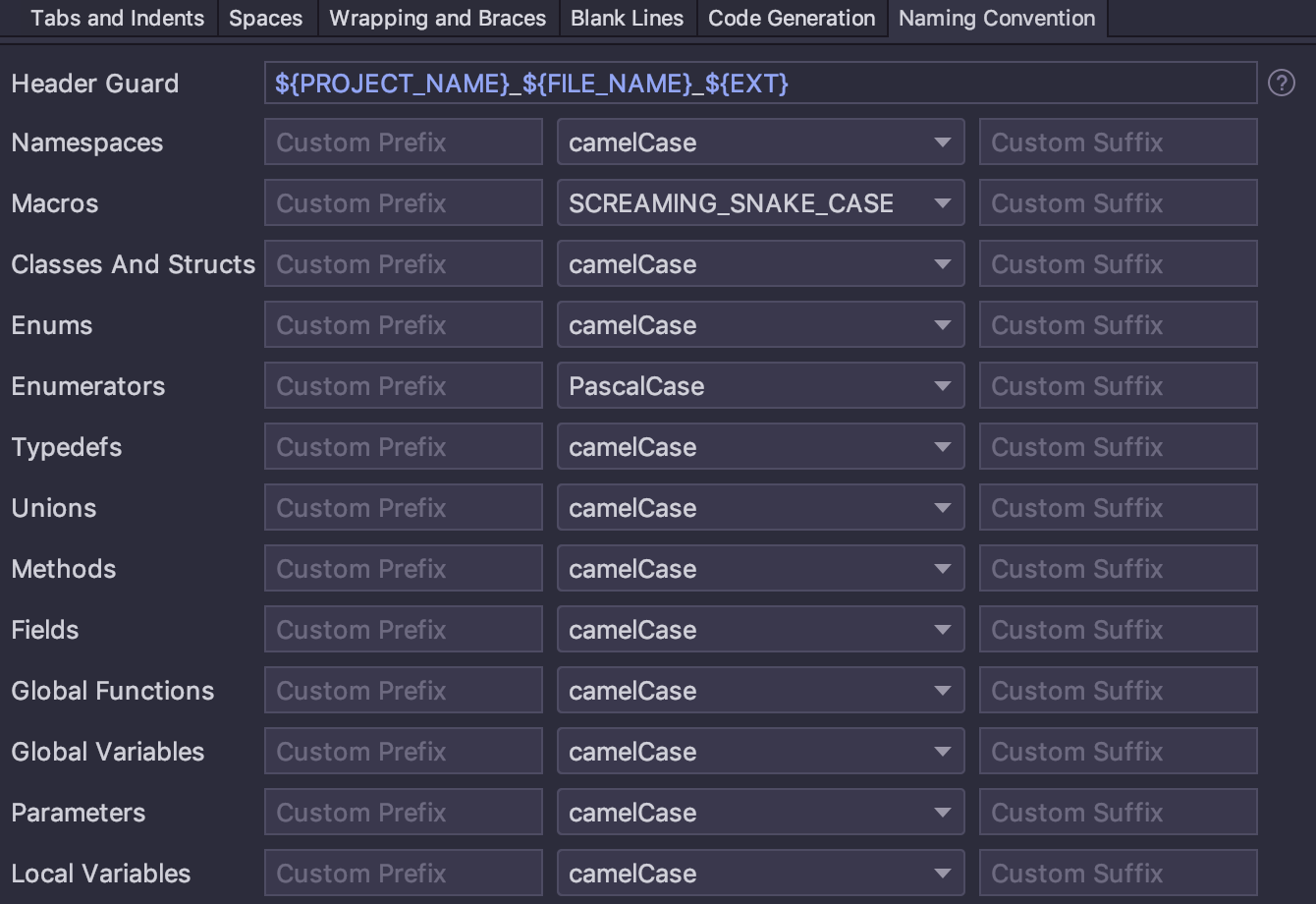
Run and debug
AppCode is now able to join processes running not only on the simulator, but also on the device ( ⇧⌘A → Attach to process ):

The ability to select the language and region of the application is added to the launch configuration settings:

Run to Cursor can be called up not only via ⌥F9 , but also by clicking on the line number in the editor:
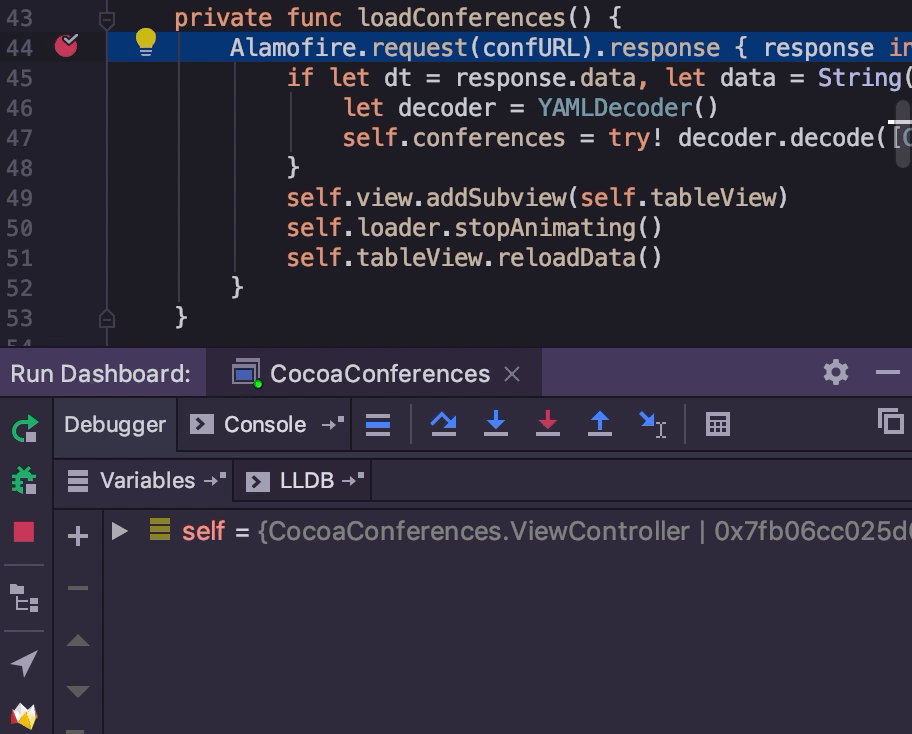
Recalculation of variables during debugging can now be disabled using the Mute Variables action in the context menu:
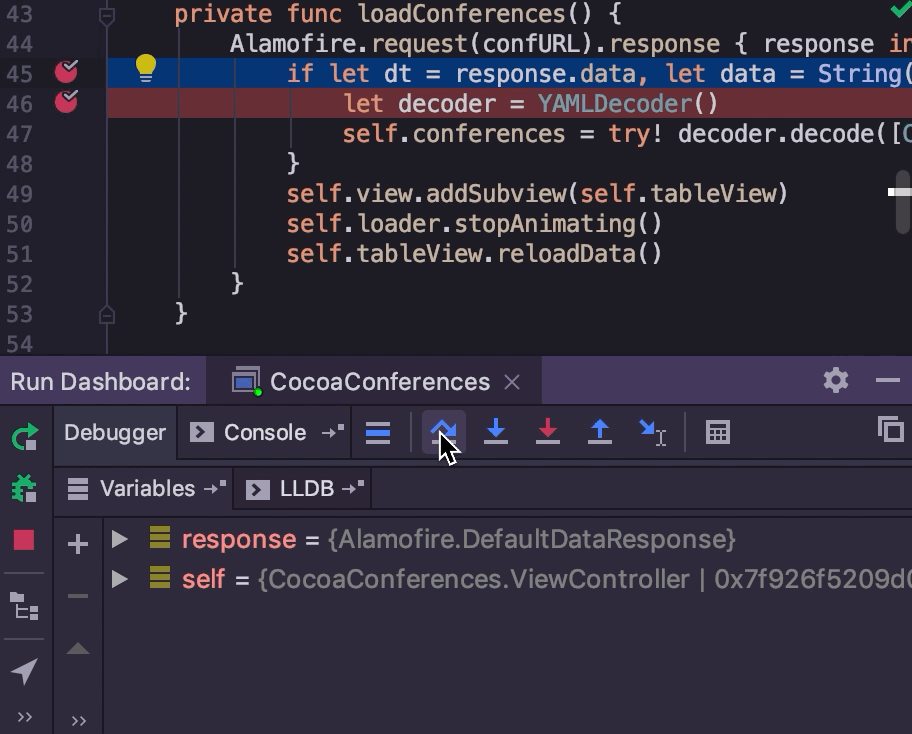
Themes for IDE
The attentive reader has already noticed that all the screenshots in the post are made using the Dark Purple theme:
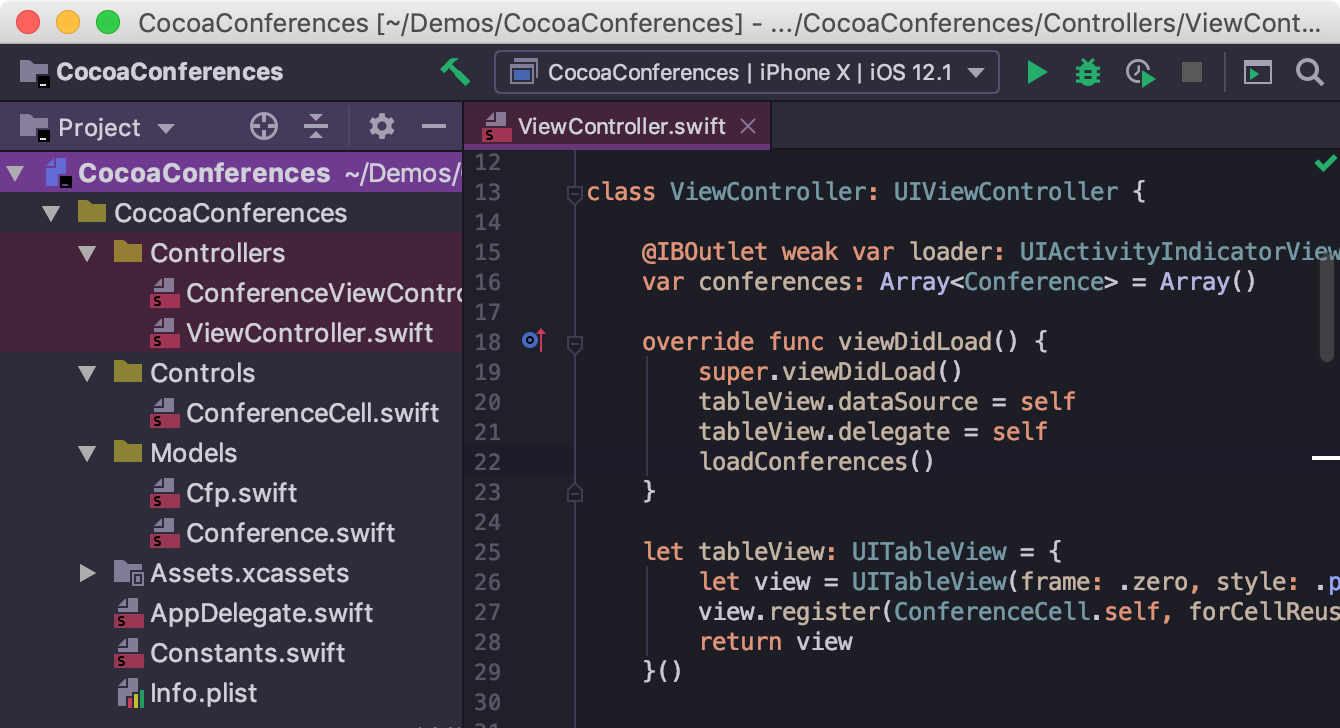
IDE themes can now be made independently , therefore, in the plugin repository, apart from a few themes made by us, you can already find several custom design options. And until May 3rd, you can not only make your own topic, but also take part in the contest we recently announced.
List of recently viewed / modified code sections
There are several useful actions for navigating to newly opened or changed places in the code:
- Recent Files (
⌘E) - Switcher (
⌃⇥) - Jump to Last Edit Location (
⇧⌘⌫)
Moving to the last edited section of code is generally difficult to overestimate, especially when editing a large file.
Now there is also a list of recently viewed / changed places Recent Locations ( ⇧⌘E ):
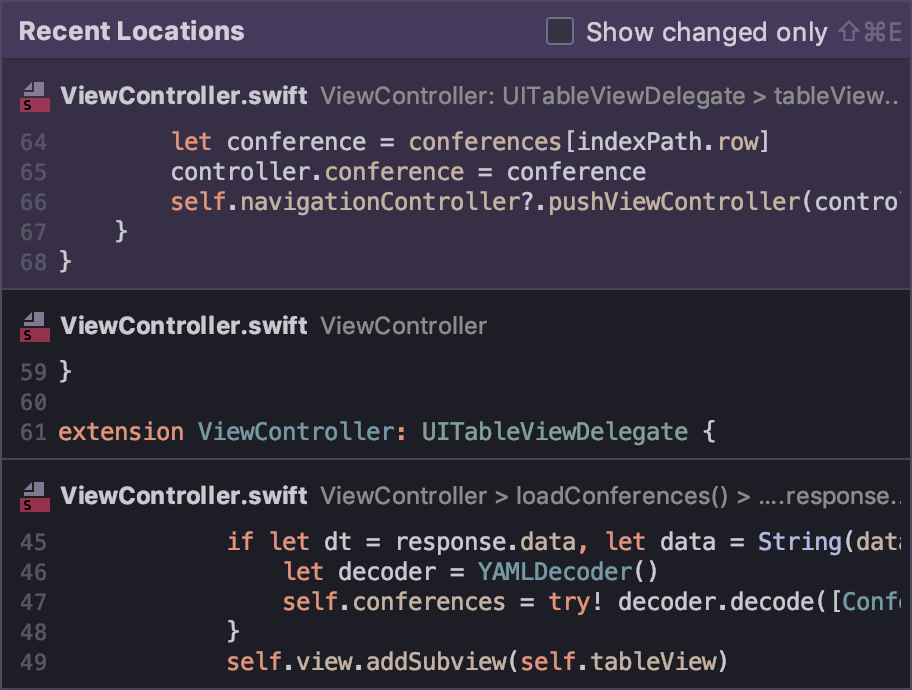
Here is such a release. All questions, suggestions and even bug reports write right here in the comments - we will be happy to answer!
AppCode command
')
Source: https://habr.com/ru/post/448462/
All Articles